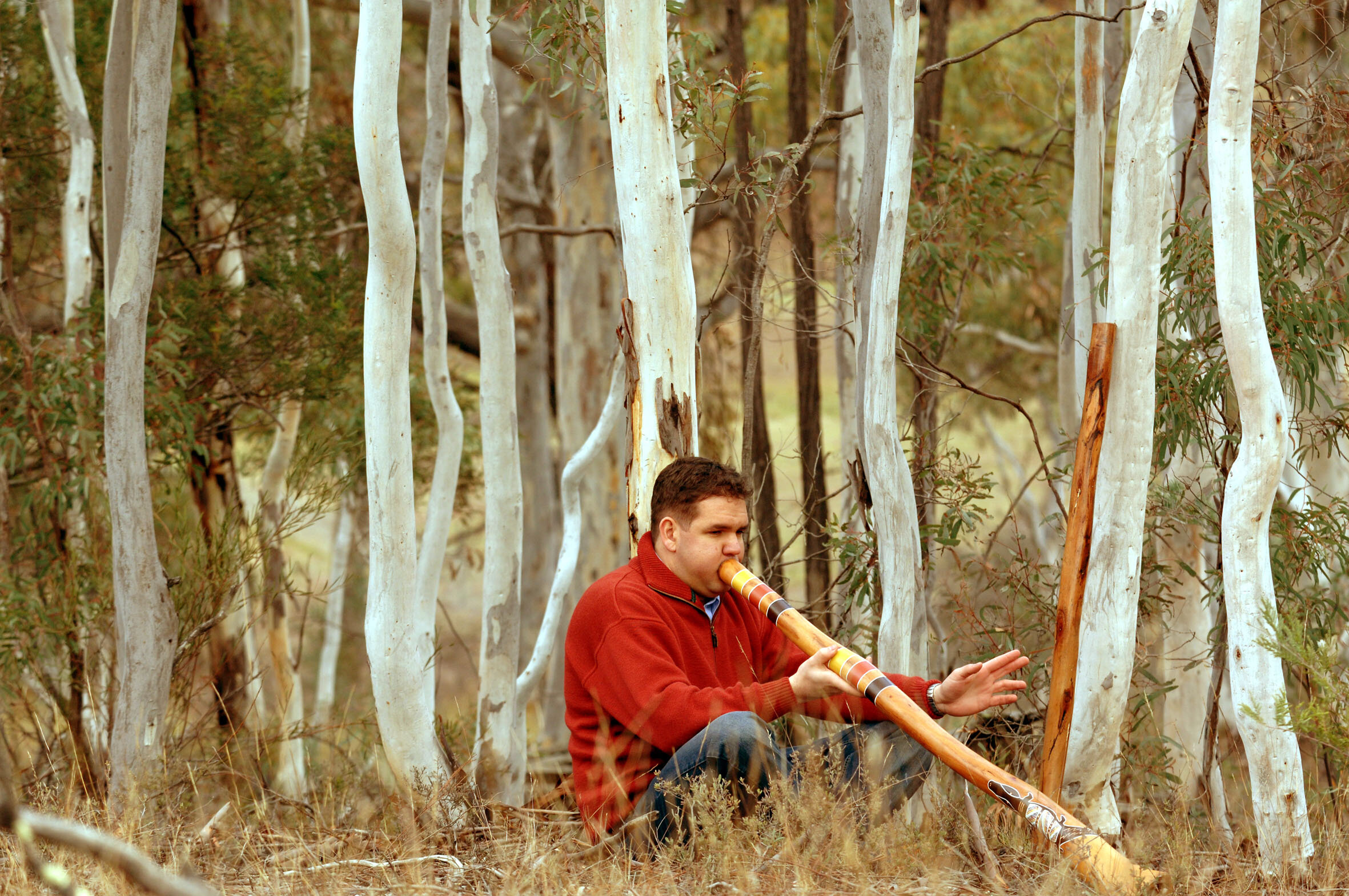

Australia’s most iconic sound is almost certainly the didgeridoo. The long wooden tube-shaped instrument is famous for its unique droning music and has played a significant role in Australian Aboriginal culture for thousands of years. Despite the instrument’s simple design, the playing technique can be highly complex.
Joe Wolfe and John Smith from the University of New South Wales conducted acoustic experiments to study the didgeridoo’s unusual and complicated performance techniques. Smith will be presenting their work as part of Acoustics 2023 Sydney, running Dec. 4–8 at the International Convention Center Sydney.
“We were interested in the effect of the player’s vocal tract on various wind instruments,” said Smith. “The didgeridoo seemed like an obvious start because the effect is so striking.”
Much more than with almost any other instrument, a didgeridoo player uses his vocal tract and vocal folds to produce striking changes in timbre.
“Resonances in the mouth tend to remove bands of frequencies in the didgeridoo sound and we notice the remaining bands,” said Smith. “It’s a bit like a sculptor removing marble to leave the things that we notice.”
To study didgeridoo performance, the team developed new experimental techniques. One involved injecting a broadband acoustic signal into a player’s mouth to measure the acoustic impedance spectrum of a didgeridoo player’s vocal tract. The impedance spectrum is an indicator of which frequencies will resonate and which will be suppressed.
This information let Smith and his colleagues identify traits that make the best didgeridoos, explore advanced techniques musicians use to create more complicated sounds, and expand their studies to other wind instruments.
In another study, the team was able to identify and understand the acoustic properties of didgeridoos most preferred by expert players; these can be very different from the properties of other wind instruments.
“We looked at advanced performance techniques, not only in the didgeridoo, but also in other wind instruments, such as clarinet and saxophone,” said Smith. “We continue to research subtle features of expressive playing of wind instruments.”
Provided by
Acoustical Society of America
Citation:
Picking up good vibrations: The surprising physics of the didgeridoo (2023, December 5)
retrieved 5 December 2023
from https://phys.org/news/2023-12-good-vibrations-physics-didgeridoo.html
This document is subject to copyright. Apart from any fair dealing for the purpose of private study or research, no
part may be reproduced without the written permission. The content is provided for information purposes only.





